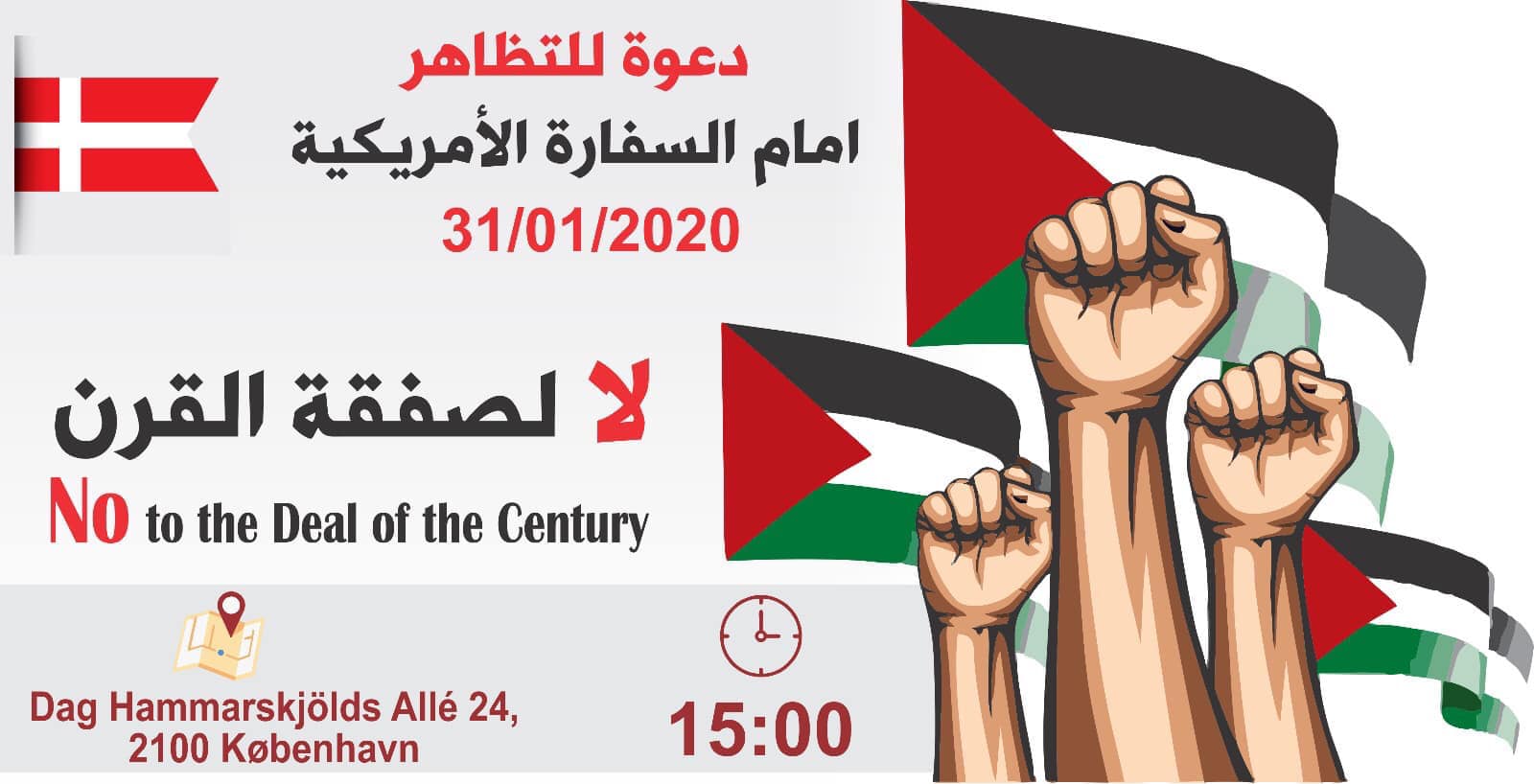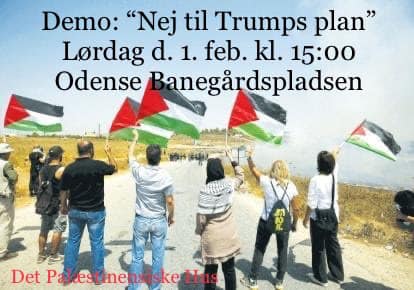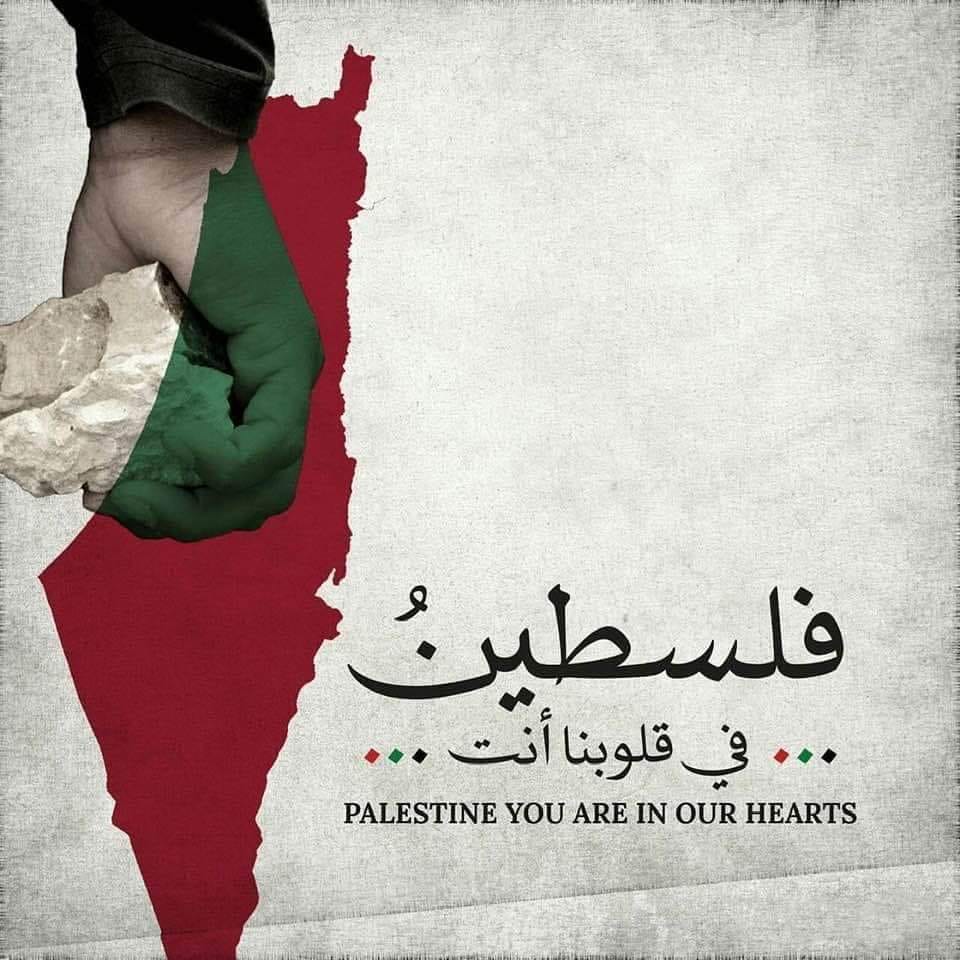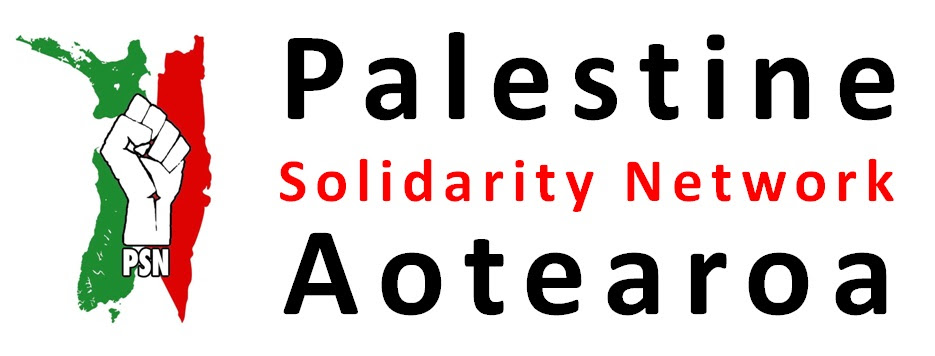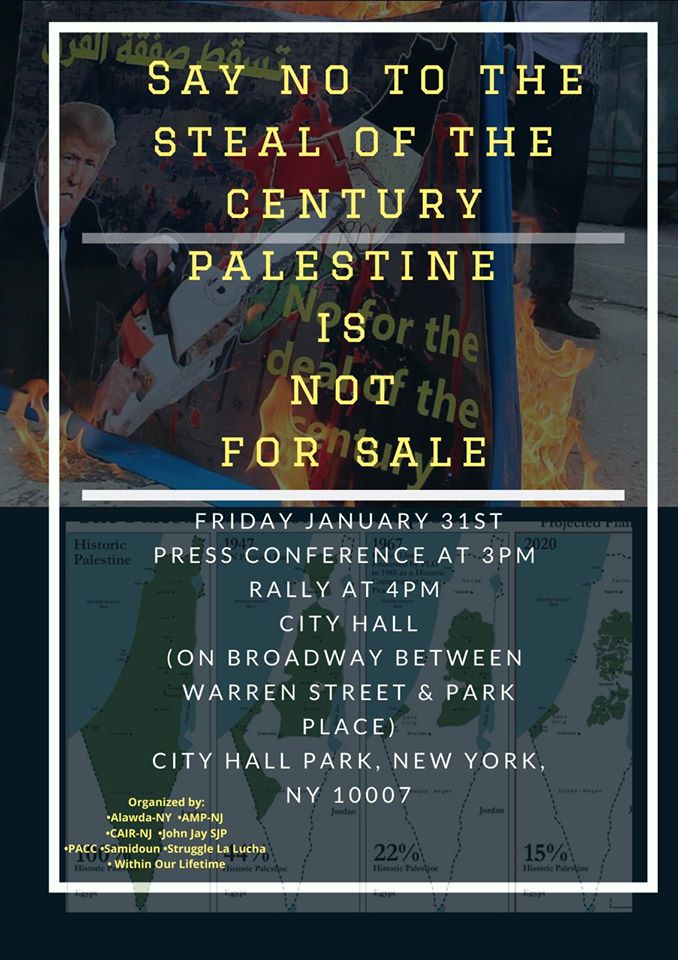Saturday, 1 February
1:00 pm
US Embassy
33 Nine Elms Lane
London, UK
Facebook: https://www.facebook.com/events/2883478418385390/
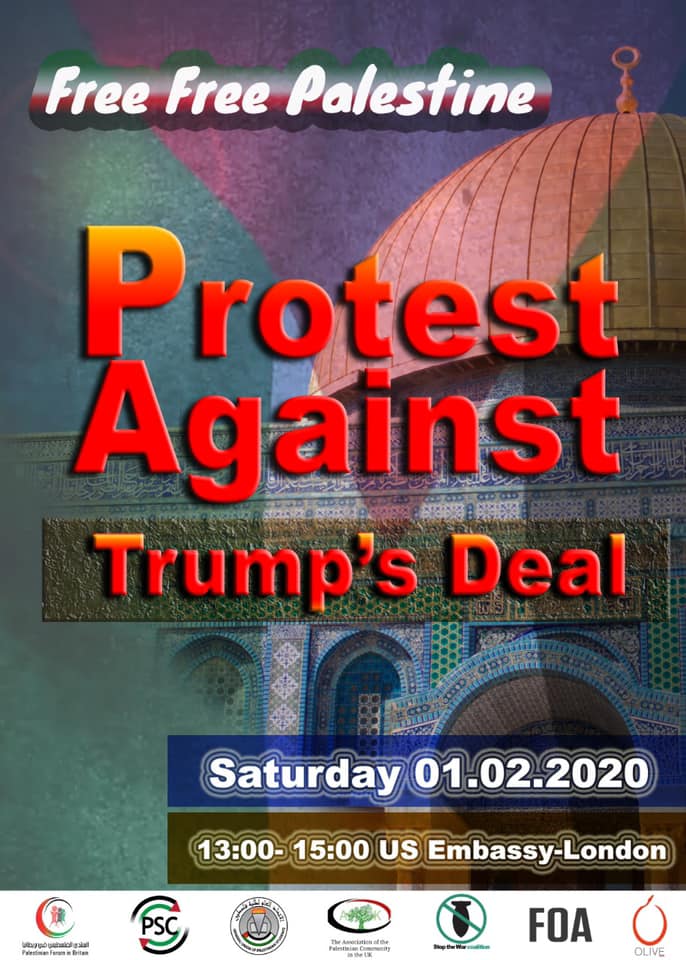 Stand Against ‘The Deal of The Century’ – Protest in front the American Embassy, London.
Stand Against ‘The Deal of The Century’ – Protest in front the American Embassy, London.
Dear Brothers, Sisters, supporters and advocates of Palestine,
We call on all Palestinians, Arabs, Islamic communities, solidarity organisations and friends of Palestine to protest against the deal of the century that was proposed on the 28th January 2020. US President Donald Trump, pledged a deal which aimed at liquidating the Palestinian cause and insentively minimising sovereignty for the Palestinian people across Palestine.
Time and date: 1pm-3pm on Saturday 1st February 2020.
Location: US Embassy, London, 33 Nine Elms Lane, Nine Elms, London SW11 7US.
Nearest train stations: Vauxhall Underground Station, Queenstown Road and Battersea Park rail station.
Let’s raise our voices loudly against this deplorable deal and oppose the illegal Israeli practices that the insentively corrupt American government have projected and once again endorsed.
Let the world know that the people of Palestine and their supports will not stand by and accept the eradication of the Palestinian cause. Let us mobilise in our numbers and reject yet another inequitable resolution set by the Israeli authorities.
Please bring the flags of Palestine and banners indicating any rejections to the deal.
Organised by:
•Palestinian Forum in Britain (PFB)
•Palestinian Community Association in London
•General Union for Palestinian Students / British Branch
•The Palestinian Youth Foundation in Britain “Olive”.
* Stop the war
Supported by:
•Palestine Solidarity Campaign (PSC)
•Friends of Al-Aqsa (FoA)
•Muslim Association of Britain (MAB)
#No4DealOfCentury
#Jerusalem
#Free_Palestine
#FreePalestine

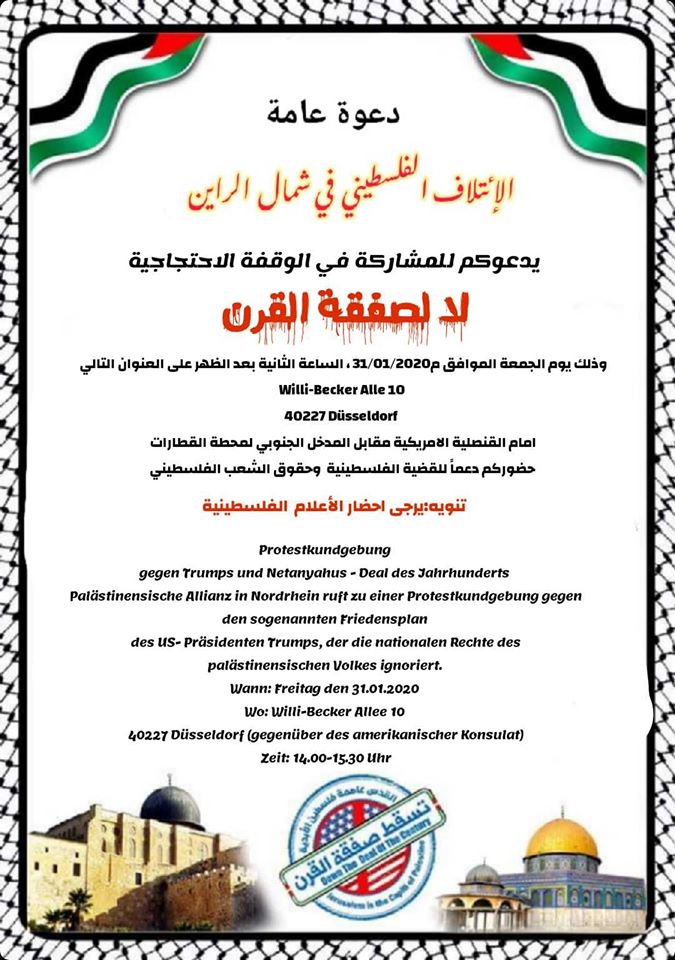

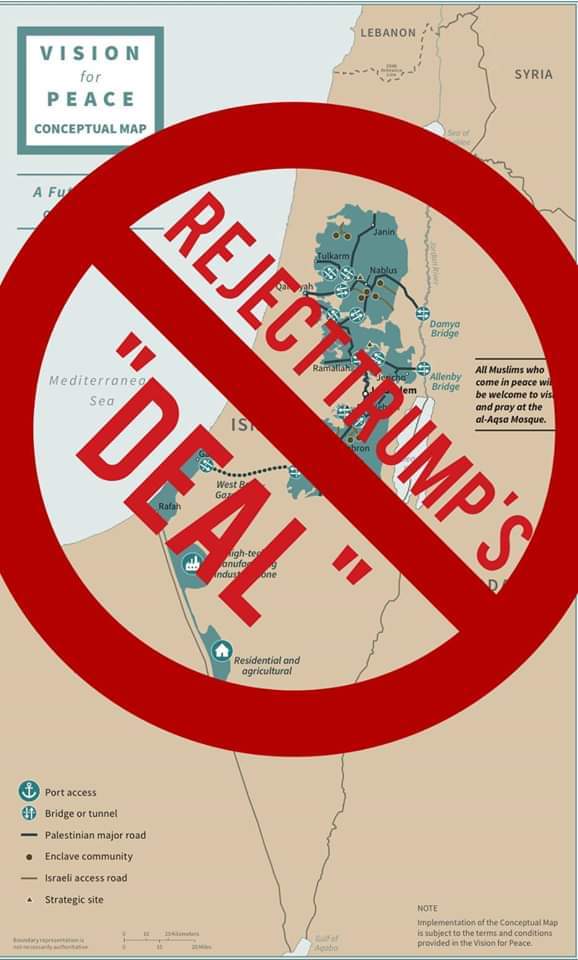 Trump’s “Deal of the Century” is nothing more than an attempt to legalise apartheid and further entrench occupation. Denying Palestinians their collective Right to Self Determination, Right to Return and an end to the Illegal Occupation.
Trump’s “Deal of the Century” is nothing more than an attempt to legalise apartheid and further entrench occupation. Denying Palestinians their collective Right to Self Determination, Right to Return and an end to the Illegal Occupation.